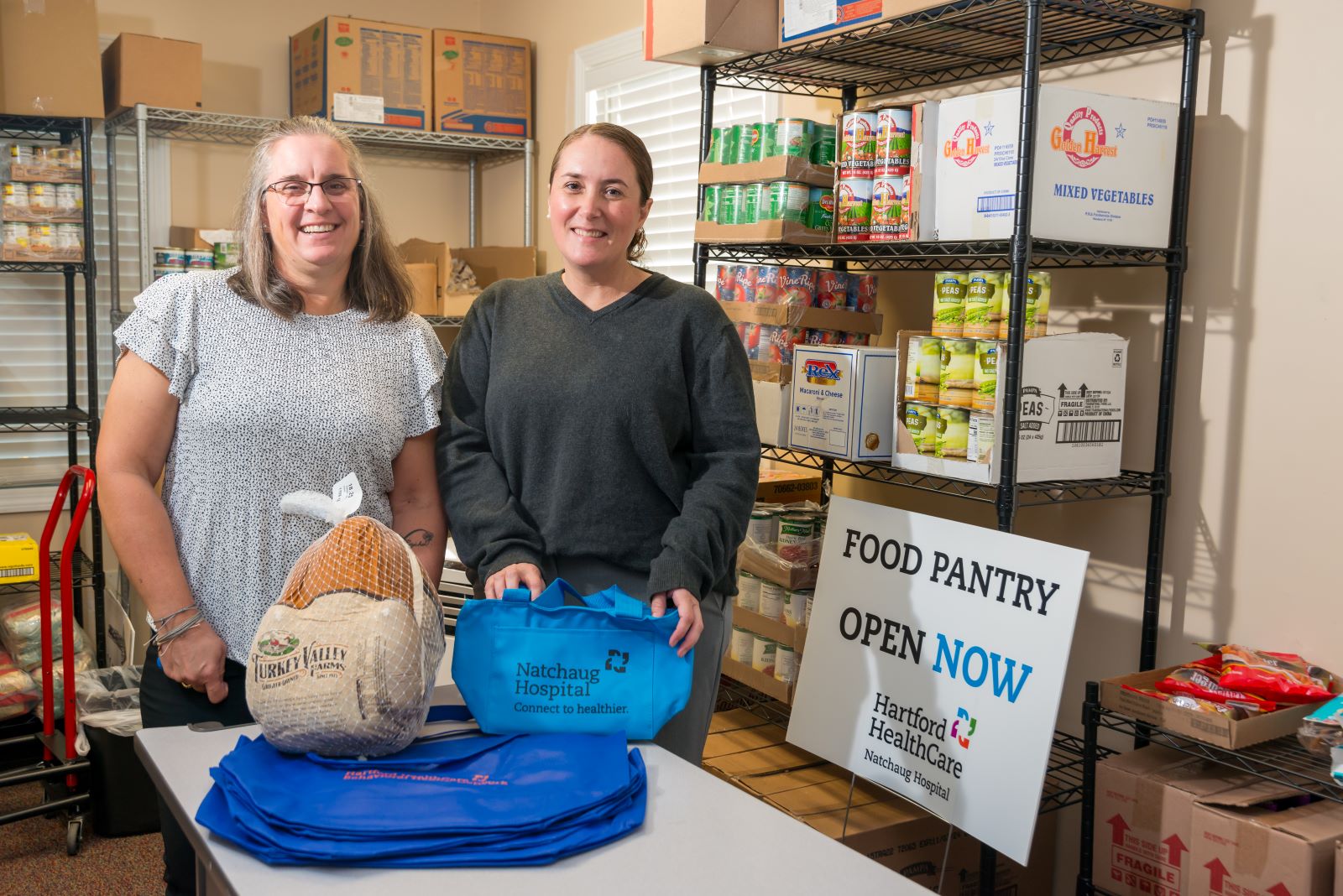<< Back
Natchaug Team Covers all Bases to Help Patients with Long-Term Mental Illness

October 12, 2023
Decades ago, a long-term mental illness diagnosis meant institutionalization for treatment and around-the-clock monitoring, but treatment advances mean that even those with severe and lasting mental illness can be helped on an outpatient basis after hospitalization.
That doesn’t mean the struggles are minimized, however. In fact, patients can struggle even more if they have no home, have trouble getting food, or lack money for clean clothes or toiletries. Those stressors can make it almost impossible to live in society.
Over the years, Natchaug Hospital colleagues have developed relationships with nonprofits and state-funded agencies that deal with what might be called “the rest of life,” or beyond one’s mental wellbeing. That includes housing, food to eat, clothes, having transportation, and finding and keeping a job.
“A patient’s illness is only one part of their identity,” says Carla Schnitzlein, MD, Natchaug medical director. “We know recovery is a journey and Natchaug and outpatient treatment are only one step in that journey. If our patients don’t have access to the resources they need, they will come back to us.”
Natchaug teams work to ensure patients “have safe housing, have a recovery support specialist, and are connected to other providers to treat their overall health. We want to set them up for success,” she adds.
On behalf of patients, Natchaug colleagues works such state-funded and private nonprofits as:
- Southeastern Mental Health Authority
- United Services
- Community Health Resources
- InterCommunity
- Capitol Region
- River Valley Services
- Western Mental Health Network
- Community Mental Health Affiliates
- United Services
- United Community and Family Services
- Perceptions Program
“Making these connections allows us to extend what we can do,” Dr. Schnitzlein says.
Meeting patients’ basic needs begins at Natchaug, where there’s a food pantry and clothing closet. A bag of groceries or new socks “might seem like a one-off to me but, for that person, it might be the moment of hope that helps them start their journey,” Dr. Schnitzlein says.
Patients, explains Ashley Perreira, PsyD, Natchaug’s director of inpatient clinical services, stay an average of seven to 10 days. During that time, “we aren’t just focused on treating a symptom or diagnosis. We want to support our patients holistically by recognizing the psycho-social stressors they are facing and how these impact their mental health and wellbeing. Housing insecurity is a perfect example of this, and we have a number of related partnerships in the community.”
Case managers and clinicians are the key to helping patients live stably and successfully outside the hospital, Dr. Perreira says. They work with the outside agencies and are often the only support for an individual.
“That networking piece is critical,” she says. “The clinical and case management team know the options out there to provide that wrap-around support.”
Once a patient is discharged from Natchaug, they often enter partial hospitalization or intensive outpatient programs. Partial hospitalization is four hours a day, five days a week, says Carrie Vargas, PhD, Natchaug’s regional director of ambulatory services. Intensive outpatient is three hours a day, three to five days a week. Natchaug even provides transportation for anyone needing it.
“We know these patients benefit from and are most successful with a continuum of care,” Dr. Vargas says, adding that case managers work with patients to secure housing, navigate insurance or find jobs. “Unresolved needs can impact their mental health. We want to address their mental health concerns, medical concerns and basic needs.”